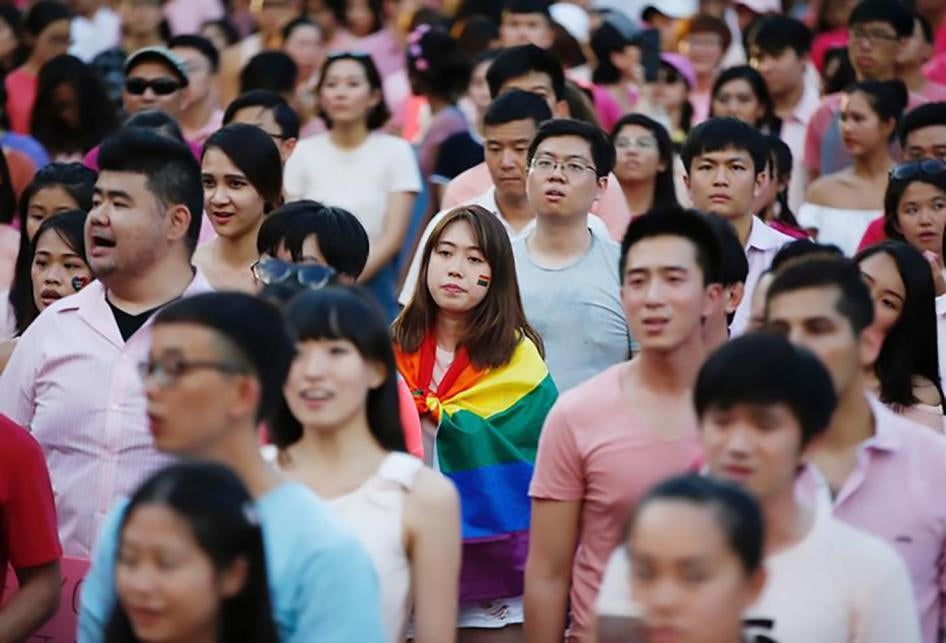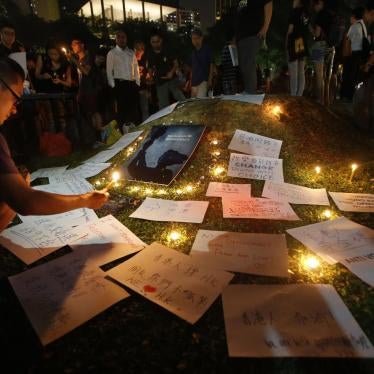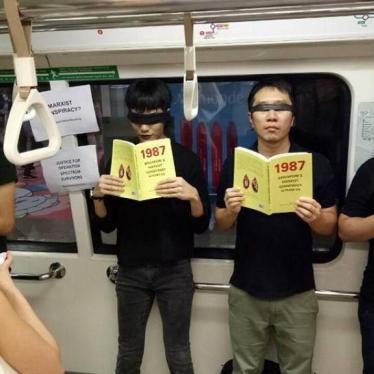(New York) – Singapore’s government imposed further restrictions on free speech and peaceful assembly while harassing and prosecuting critical voices in 2017, Human Rights Watch said today in its World Report 2018.
In the 643-page World Report, its 28th edition, Human Rights Watch reviews human rights practices in more than 90 countries. In his introductory essay, Executive Director Kenneth Roth writes that political leaders willing to stand up for human rights principles showed that it is possible to limit authoritarian populist agendas. When combined with mobilized publics and effective multilateral actors, these leaders demonstrated that the rise of anti-rights governments is not inevitable.
“The Singapore government’s heightened limits on dissenting voices outdoors, indoors, and online have increased fear and self-censorship in the city-state,” said Phil Robertson, deputy Asia director. “By severely restricting the scope for any sort of public protest, the government criminalizes basic freedoms and undermines the country’s reputation abroad.”
Singapore’s draconian limits on public assemblies tightened even further during 2017. The government maintains strict restrictions on peaceful assembly through the Public Order Act, which requires a police permit for any “cause-related” assembly outside the small and closely monitored “Speakers’ Corner” space in Hong Lim Park. The law was amended in 2017 to provide the police commissioner with specific authority to reject any permit application for an assembly or procession “directed towards a political end” if any foreigner is found to be involved.
In early September, police summoned for questioning participants in a July 2017 vigil outside Changi prison to support the family of a man scheduled to hang, and banned them from leaving the country. In November, the police filed criminal charges against Jolovan Wham, one of the participants in this event, and indicated that the others involved remained under investigation. The authorities also charged Wham with two other counts of violating the Public Order Act – one relating to an indoor forum at which Hong Kong activist Joshua Wong spoke from overseas via Skype, and the other a silent protest to commemorate the 1987 arrests of activists under the abusive Internal Security Act (ISA).
Although the government passed new legislation codifying the law of contempt in August 2016, the legislation did not go into effect until October 2017, and the government continued to use common law contempt proceedings against those who criticize the judiciary.
Persons facing contempt proceedings in 2017 included a lawyer who posted a critical poem on his Facebook page after the execution of a client, an activist who asserted that her conviction for unlawful assembly and public nuisance was “political,” and a relative of Prime Minister Lee Hsien Loong, who referred in a private Facebook post to the judiciary as “pliant.”
The Media Development Authority effectively prohibits all positive depictions of LGBT lives on television or radio. The 8th annual inclusive Pink Dot festival took place in Hong Lim Park in June 2017. Earlier that month, the Advertising Standards Authority of Singapore (ASAS) asked a shopping center to remove the phrase “Supporting the Freedom to Love” from a promotional ad for this year’s festival on the grounds it “may affect public sensitivities.”
Government rules require foreign companies to apply for a permit to sponsor an event in Hong Lim Park. The 10 multinational corporations that applied for a permit to sponsor the 2017 Pink Dot festival were denied. However, over 100 Singapore companies stepped forward to fill the funding gap, and Pink Dot exceeded its annual fundraising target.
“The overwhelming support that Pink Dot received from Singaporean companies rebutted the government’s argument that Singaporean society is somehow not ready to recognize LGBT rights,” Robertson said. “Continued discrimination against the LGBT community shows that Singapore is still not ready to become the global economic leader it aspires to be.”









